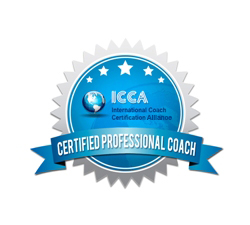Relationship stress can do a number on your wellbeing!
Relationship stress is very common and very difficult to deal with. I frequently encounter clients and workshop participants that are struggling with stress in relationships.
Relationship stress may involve your relationships with family, friends, co-workers, and others (like maybe other drivers on the highway).
That brings up an interesting question...
What relationship style tends to result in the most relationship stress?
Adam Grant, a professor at The University of Pennsylvania Wharton School, has been researching one factor that seems to have an impact on relationship stress. He has found that people fall into one of three categories...
- Givers
- Takers
- Matchers.
The Givers are always ready to help others. Seldom do they expect anything in return. They just want to give. They would give you the shirt off of their back.
The Takers, on the other hand, want to get from others. They can, and often are, ruthless in taking what they want or need. They seldom or never help others.
The Matchers are willing to give but they also want to get back. There attitude is, "I'll scratch your back if you will scratch mine." They want "fairness" and are willing to go out of their way to make sure things are fair.
Which of these three groups of people do you believe experience the most stress? Good question, but before I answer it, let me address another question...
Which group is most likely to be healthy, happy, and successful?

Who do you think is the most healthy, happy, and successful group?
The good news is that it is not the Takers. The Takers are often more successful quickly, but then they crash and burn.
Interestingly, being actively opposed by the Matchers is frequently a factor in the Takers' failure. (Way to go, Matchers!) Moreover, many times other Takers sabotage them as well.
Most people believe the Matchers are the one's who are most successful.
Wrong!
The Matchers don't experience the best results or the worse. They tend to fall in the middle.
It turns out that the Givers tend to live longer, have better health, and are happier. So there is definitely an upside to being a giver.
But that's not the end of the matter. Let's go back to our first question...
What relationship style tends to result in the most relationship stress?
There are also downsides to being a Giver...
- Givers are more likely to experience burnout.
- They are often taken advantage of by takers.
- Givers tend to make more mistakes than others; the quality of their work is not as high quality as those in the other two groups. This seems to be because they spend so much time helping others that they don't have enough time for their own work.
Givers fall into two subgroups...
- Stressed-out unsuccessful givers
- Successful givers
In addition to being more healthy and happy, givers are either very successful or very unsuccessful.
How can a Giver be healthy, happy, and successful?
Is there a way to experience the benefits of being a Giver without having to experience the liabilities and relationship stress?
How can a person increase the chances of being in the very successful Givers group rather than the very unsuccessful Givers group?
The answer to the first question is yes. Grant says that there are three strategies that can help givers experience the upsides without the downsides.
First, stay away from Takers as much as possible. Don't associate with them or work with them more than you have to. (The Balanced Lifestyle Matrix addresses this in cell 16.) It can also help to have a few Matchers around to watch you back.
Second, do five minute favors. Give to others but within limits; don't give so much to others that you sacrifice yourself as a result.
Third, ask for help when needed. Doing so usually makes Givers uncomfortable. They don't want to burden others.
If you find this true for you, ask for help anyway. By asking for help, you are more likely to get the help and support that you need. Furthermore, asking for help is actually a way to help others because it gives them the opportunity to be a Giver.
So go ahead and give but do so thoughtfully with clear and firm limits. By doing so, you will be healthier, happier, and more successful. You will also experience less relationship stress.
Adam Grant is an entertaining and informative speaker from whom you can learn a lot. Here is a video of him explaining his ideas.
Home > About Stress > Relationship Stress
FREE RESOURCE
The Stress Relief - Life Balance News and Tips newsletter is filled with brief, to-the-point tips, information, resources, special offers, and breaking news to help you make your life less stressful, more balanced, and highly satisfying. If you are stressed-out, you will benefit from this valuable resource.

